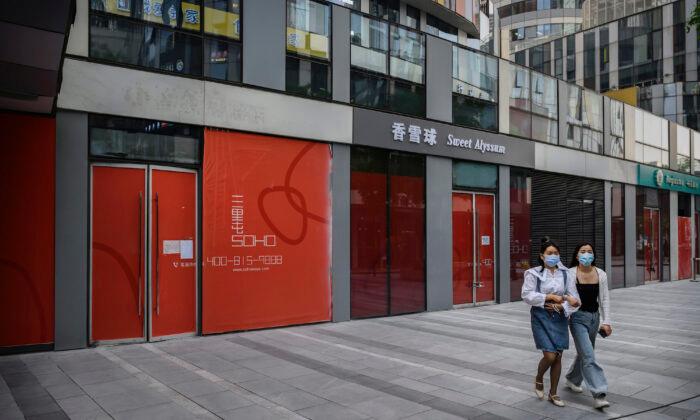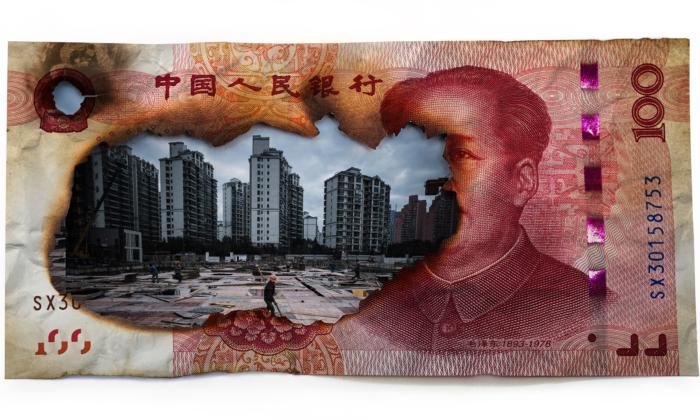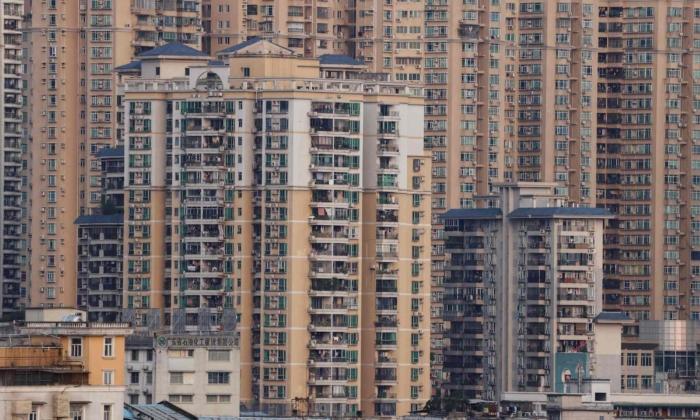China may have ditched its annual gross domestic product (GDP) growth target, although the regime hasn’t given up on saving its economy by all means necessary.
Without the burden of meeting certain growth targets each quarter, Beijing theoretically has more freedom to address critical underlying issues facing the economy.
The growth-focused model has in the past pitted officials at various levels (county, municipal, provincial, and national) against each other as geographies competed to generate high growth. Officials would pursue the most convenient ways to produce easy growth, and what resulted was excess capacity and excess supply.
Increased Funding to Small Businesses
While Chinese small businesses have often taken a back seat to large companies and state-owned enterprises, the People’s Bank of China (PBoC) and the Ministry of Finance recently established a new funding vehicle to divert up to 440 billion yuan ($60 billion) to banks supporting small businesses.Regional banks are instructed to use the funds for new loans or to extend maturing loans of small businesses, under the initiative announced by PBoC deputy governor Pan Gongsheng.
Another program announced recently by the PBoC promises approximately 400 billion yuan to purchase existing loans made to small businesses from commercial banks. But these loans would need to be bought back by the banks in one year’s time. That would temporarily free up bank balance sheets to provide new loans to small businesses.
Separately, the PBoC has asked banks across the country to curtail lending to real estate developers and local governments to provide more capital to small businesses.
Cash Payments to Municipalities
China is also looking to channel funds directly to certain cash-strapped cities and county governments, bypassing the banking network and provincial government system.This stimulus funding will go to cash-strapped city and county governments to help alleviate budgetary issues that result from lower revenues.
Coupon Clipping
In the latest string of actions to promote spending, Beijing announced on June 3 that it would sponsor shopping coupons, to spur consumption and reverse the economic fallout from the CCP virus.Around 12 billion yuan ($1.7 billion) in coupons will be available, according to Chinese state-owned media Xinhua. The initial batch was made available on June 6 at e-commerce retailer JD.com. Going forward, Beijing is expected to promote shopping across the country to boost store sales, tourism, and sports consumption.
Encouraging Street Vendors
While authorities had previously tried to restrict such plebian entrepreneurial endeavors, in an about-face, the CCP is encouraging unemployed people to be street vendors or set up open-air stalls either as part-time or full-time careers.Separately, Shanghai authorities have also green-lighted projects to set up more street stalls to support local employment efforts.
Chinese technology platforms, such as Tencent’s WeChat, Alibaba’s Alipay, as well as e-commerce retailers JD.com and Suning, all announced new products and applications to assist street vendors in selling their products.






Friends Read Free